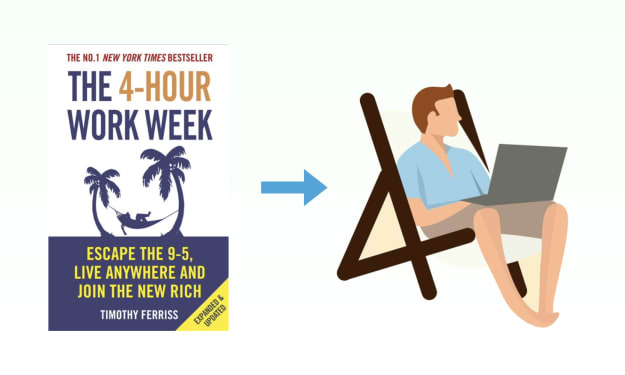How did I Start Writing?
From a fear-writing person (since childhood) to an accomplished author and top technical writer: a transformative journey.

A few months ago, I flew back to my hometown and shared a 2.5-month time with my parents. Nearly every morning, I woke up early and wrote something on my MacBook. This daily routine of mine surprised my parents greatly, despite their awareness of my previous book publications. From their memory, Zhimin was a boy deeply afraid of writing.
Indeed, I consistently received poor academic results on writing-related exams. The feeling of "I suck at writing" accompanied me since primary school in China, all the way through completing my master's degree studies in Australia. In other words, I was terrible at writing, regardless of language. Upon the acceptance of my master's thesis, a sense of relief washed over me, marked by the thought, "I am now free from the obligation to write, not any more."
At work, I managed to avoid any tasks that involved writing. Now, looking back, I missed many good opportunities.

Now, I have authored 12 technical books and was rated a top writer in Software Testing on the Medium platform (over 150 of my articles were featured in leading software testing newsletters). Yes, people pay to read my writings. I earned some passive income from writing, the activity that I feared for many years. What changed?
In 2006, as a senior software engineer, I discovered the power of Test Automation. To put it in simple terms, I write automation scripts to drive a web app in a browser to perform quality checks. I was really passionate about it, spent about two years of my spare time practising test automation, and even developed a software tool named iTest2, to make creating/debugging automated testers easier. I applied test automation in the government project I was working on, and it was a huge success. Every team member loved iTest2 (later renamed to TestWise).
One day, my colleague Tim directed my attention to an online article about a senior Microsoft engineer saying UI Test Automation is very hard. Tim said, "But we did not find that hard. Maybe you should let the world know iTest2 and how you implement test automation". I was silent. I was comfortable with writing code and test scripts, but not writing.
However, I could not let go of the idea of sharing iTest2 and my approach to test automation. Finally, one day, I gathered the coverage to write down a 500-word article containing many screenshots and submitted it to InfoQ, a renowned software engineering news/articles site that I visited daily.
A few days later, I received a reply from a senior editor at InfoQ, saying he couldn't see the value of the article, found it hard to understand, and recommended a rewrite. Disappointed but not surprised, I spent the next two nights rewriting the article and sent it back to the editor. He replied quickly this time, still unsatisfied, and pointed out the parts that needed improvement. I remembered one of his advice, "You need to put yourself as a person who does not understand the topic". On the third try, before I submitted it, I told myself, "This is the last time".
To my surprise, the editor liked the 3rd edition and praised the content as innovative and could be very useful to a big community. I still recall the immense joy I felt upon seeing my first writing on a reputable media, Refactoring Automated Functional Test Scripts with iTest2. The date was 2009–07–22. I was so glad that I did not give up.
Then, with that confidence, I started writing my first book, "Practical Web Test Automation", over 200 pages. It was challenging work, and I did numerous revisions. Nevertheless, upon its completion, I felt, for the first time, I became quite comfortable with writing.
My Tips for people who want to start/improve their writing:
1. Passion
Start writing on stuff that you are really passionate about. Ignore the grammar errors or even spelling errors on the first go. The natural flow of writing is far more important.

2. Reading regularly
The importance of reading is needly to say. However, the young generation nowadays spends too much time on social media, resulting in a shorter attention span. Oh well, if you want to be a good writer, you know what to do.
3. Collecting quotes, references and stories
A simple way to make your writing more interesting and convincing is to quote someone else's words or story. This means you need to develop a habit of collecting insightful quotes and stories, from regular reading. For example, if you add the following quote in an against-marketing article, people might still disagree with you but won't debate.

4. Persistence: Write regularly.
My daughter's writing skill was superior to mine at her age; however, there is still much room for improvement.
I set a rule for her to write one article (on Medium) weekly, on the weekend. She started in December 2021. Now she is writing a technical book for Apress publisher, due to release in a month or two.
If I managed to be able to write, anyone could, really.
Also, don't use ChatGPT-generated sentences/paragraphs, as it may break the flow of your article.
About the Creator
Zhimin Zhan
Test automation & CT coach, author, speaker and award-winning software developer.
A top writer on Test Automation, with 150+ articles featured in leading software testing newsletters.






Comments
There are no comments for this story
Be the first to respond and start the conversation.